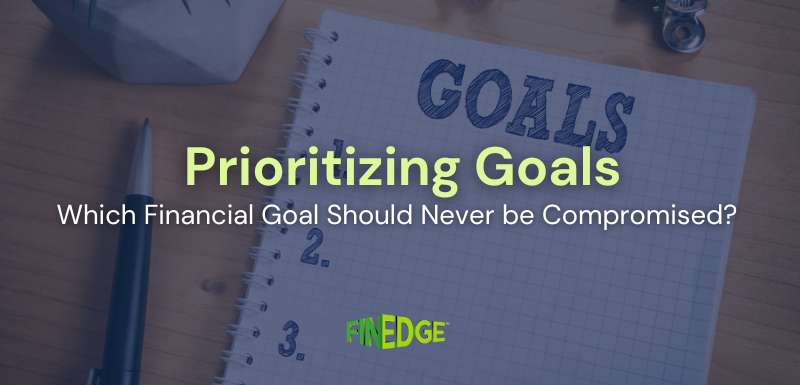The Impact of Inflation on Your Financial Future & Investment Strategy
- Inflation in India averages 4–7%, but sectors like education see inflation rates above 10%
- Long-term financial goals are the most impacted by inflation, including education, retirement, and housing
- A 10-year child education goal could fall short without inflation-adjusted returns
- You need a goal-based, diversified, and inflation-proof strategy to stay financially secure
Inflation may seem like a background number in the news, but its impact on your financial future is anything but minor. From education to retirement, rising costs can silently derail your most important goals, unless your investment strategy is built to outpace it.
The Invisible Threat: How Inflation Quietly Erodes Your Wealth
Inflation is often called a silent wealth destroyer; we see prices rise over time, but rarely calculate how they affect our long-term financial goals. Whether it’s groceries, travel, or tuition fees, the value of your money today won’t stretch as far tomorrow. Understanding how inflation impacts your financial journey is the first step to protecting your future.
Why You Must Account for Inflation in Your Financial Planning
In India, inflation hovers around 4–7% annually, but specific categories like education and healthcare can see double-digit inflation. If you ignore this in your planning, you risk falling well short of your financial goals, even if you’re saving regularly.
Example
You invest Rs. 10,000 per month in a savings plan at 4% annual return. After 10 years, your corpus grows to ~Rs. 15 Lakhs. However, if education costs rise at 11% annually, a degree that costs Rs. 10 Lakhs today will balloon to Rs. 28 Lakhs in 10 years, leaving a gap of Rs. 13 Lakhs.
How Inflation Impacts Long-Term Financial Goals
Inflation’s impact compounds over time. The longer your goal’s time horizon, the more damaging inflation can be if not planned for properly.
Retirement
A comfortable retirement today may cost 2–3x more in the future. If your monthly lifestyle costs Rs. 2 Lakhs today, you may need Rs. 6.5 Lakhs per month 20 years from now, just to maintain your current standard of living.
Buying a Home
Home prices in major cities like Mumbai and Gurgaon have increased over 20% in just five years. Add to that rising loan interest rates triggered by inflation, and your cost of home ownership can skyrocket.
Children’s Education
Education inflation is among the highest, averaging 11–12%. In real terms, this means college fees can double every 6–7 years. IIT tuition alone rose from Rs. 50,000 to Rs. 3 Lakhs in under a decade.
Marriage Goals
Weddings in India are grand, emotional milestones. But they’re also financial ones. In 2023, wedding expenses rose by 25–30%, a trend that will continue. Early planning is key to creating a memorable, stress-free celebration.
Build an Inflation-Proof Investment Strategy
A good investment strategy doesn’t just grow your money, it outpaces inflation. Here’s how:
1. Invest with a Process
Avoid ad hoc investing. A goal-based investment plan ensures you’re factoring in inflation and growth assumptions for every milestone.
2. Understand Real Risk
Being conservative may feel safe, but not beating inflation is its own kind of risk. You may need to take calculated exposure to equity to stay ahead.
3. Diversify Smartly
Balance your portfolio across equity, debt, and hybrid funds. Equity can beat inflation in the long run, while debt adds stability during volatile phases.
4. Be Aggressive for Long-Term Goals
For goals 10+ years away, consider equity-heavy strategies. Time can absorb market volatility while compounding works in your favor.
5. Use Step-Up SIPs
As your income rises, increase your SIP amount annually. A step-up SIP of 10% per year can more than double your long-term wealth versus a regular SIP.
Stay Focused on Goals, Not Just Returns
Markets will fluctuate. Inflation will rise and fall. What must remain constant is your discipline. The only way to beat inflation is to stick to a personalized, inflation-adjusted plan tailored to your goals.
With FinEdge’s goal-based investing model and DiA platform, you can plan with precision and stay aligned even during uncertain market phases.
“Inflation is not the enemy, poor planning is. When your goals are clear and your strategy is structured, inflation becomes just another variable, not a threat.”
FAQs
Your Investing Experts
Continue Reading
Which Financial Goal Should Be Your Priority While Investing?
Every investor has more than one dream, a home, a child’s education, a comfortable life and a secure future. The real challenge is deciding how to prioritise these financial goals without losing sight of what truly matters.
How the 50/30/20 Budget Rule Can Help You Achieve Financial Goals
Struggling to balance living well today and saving for tomorrow? The 50/30/20 budgeting rule offers a simple framework to manage your expenses, build financial discipline, and start investing meaningfully, even if you’re just getting started. It’s a practical first step toward long-term financial confidence.
How Long-Term Investing Can Reduce the Risk of Low Returns
Most investors want better returns with minimal risk. But what’s the secret? Time. The longer you stay invested, the more likely you are to avoid negative returns and achieve your goals. This blog explores why long-term investing, especially through SIPs, is your best defence against market volatility.

.png)

.jpg)
.jpg)